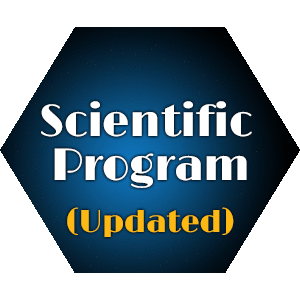
Kigho Moses Oghenejoboh
Delta State University, Nigeria
Title: Copper (II) Bioremoval from Simulated Industrial Wastewater by Acid-Treated Plantain (Musa paradisiaca) Peels and Plantain Peels-Chitosan Composite: Kinetic, Mass Transfer and Isotherm Modelling Studies
Biography
Biography: Kigho Moses Oghenejoboh
Abstract
The study investigated and evaluated the feasibility of using a cost-effective biosorbent developed from the mixture of ripe and unripe plantain peels for copper (II) bioremoval from simulated industrial wastewater. The mixture of ripe and unripe plantain peel was modified with phosphoric acid and chitosan to produce acid-treated plantain peels (APP) and plantain peels-chitosan composite (PP-CH) biosorbent. The effects of experimental conditions: initial copper (II) concentration, agitation time, agitation speed and biosorbent concentration on the biosorption process were evaluated. The results showed that copper (II) biosorption was dependent on the experimental conditions. The kinetics data from the experiment fitted well to the pseudo-second-order model, suggesting chemisorption mechanism, while the biosorption mechanism was film diffusion-controlled. Freundlich and Dubinin-Radushkevich (D-R) isotherm models provided the best correlation (![]() > 0.99) of the equilibrium data. The maximum monolayer sorption capacity (Qmax) was found to be 27.40 and 23.81 mg/g for PP-CH composite and APP, respectively. The D-R mean free energy (E) values of 10.4 and 10 kJ/mol for PP-CH composite and APP respectively confirmed the assumed chemisorption mechanism of the process. The percentage recovery of copper (II) (78-95%) with the use of inorganic acids (H2SO4 and HNO3) as eluents was also evident of the suggested mechanism. Therefore; modified plantain peels have the potential as biosorbent for the effective remediation of copper laden wastewater.
> 0.99) of the equilibrium data. The maximum monolayer sorption capacity (Qmax) was found to be 27.40 and 23.81 mg/g for PP-CH composite and APP, respectively. The D-R mean free energy (E) values of 10.4 and 10 kJ/mol for PP-CH composite and APP respectively confirmed the assumed chemisorption mechanism of the process. The percentage recovery of copper (II) (78-95%) with the use of inorganic acids (H2SO4 and HNO3) as eluents was also evident of the suggested mechanism. Therefore; modified plantain peels have the potential as biosorbent for the effective remediation of copper laden wastewater.

